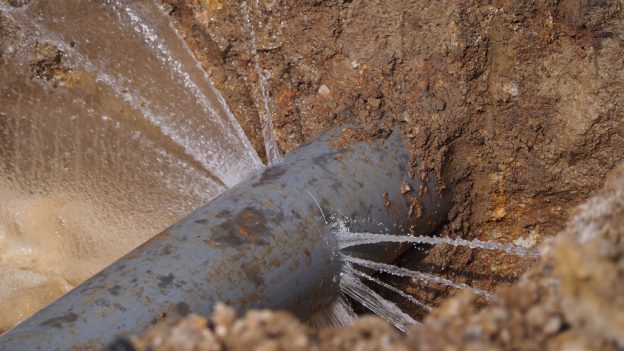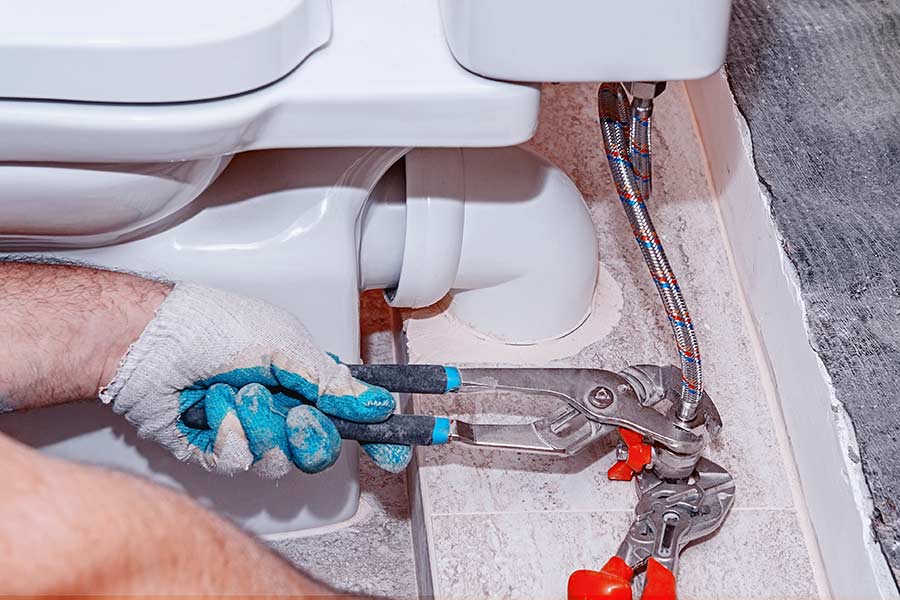We've discovered the article about How to Find and Prevent Water Leaks in Your Home listed below on the web and concluded it made good sense to talk about it with you in this article.

"Beware of little costs. A tiny leak will sink an excellent ship." - Benjamin Franklin.
He could not have actually been more right due to the fact that water leakages in our houses result in a waste of sources, boosting our water bills. Although this boost might appear negligible in the beginning, it can cause significant expenditures that can break your bank. In addition to a rise in costs, water leaks likewise cause undesirable organic development, structural damages, as well as also electrical threats.
Determining if you have a water leakage isn't constantly easy as a result of being incapable to see a lot of the pipework in your home. Nevertheless, If you have had a rise in your water expenses lately, saw water spots on walls as well as ceilings, smelt poor odor, and so on. You could want to consider requesting plumbing solutions to get it had a look at.
There are numerous reasons for water leaks, as well as we have compiled the usual reasons below. Examine to see if you have actually had related concerns in your house recently.
Obstructed drains
Food bits, dirt, and oil can cause clogged drains pipes as well as obstruct the passage of water in and out of your sink. Increased pressure within the seamless gutters can end and also create an overflow up breaking or rupturing pipes if undealt with. To prevent clogged up drains pipes in your house, we encourage you to prevent putting particles down the drain and normal cleaning of sinks.
High water stress
You discovered your house water stress is more than common yet after that, why should you care? It runs out your control.
It would certainly be best if you cared due to the fact that your typical water stress must be 60 Psi (per square inch) and although your residence's plumbing system is developed to endure 80 Psi. An increase in water pressure can put a pressure on your residence pipes as well as bring about cracks, or even worse, ruptured pipelines. If you ever before notice that your home water pressure is more than usual, get in touch with a professional about controling it.
Rust
As your pipework ages, it gets weaker as well as extra at risk to corrosion after the constant flow of water with them, which can gnaw at pipelines as well as trigger cracks. A visible indicator of deterioration in your house plumbing system is discoloration as well as although this might be hard to detect as a result of the majority of pipes hidden away. Once they are old to guarantee an audio plumbing system, we recommend doing a constant checkup every couple of years as well as alter pipes
Compromised pipe joints
Pipeline joints are the parts of our plumbing system where the pipelines connect. It is essential to keep in mind that also though pipelines are made to stand up to stress and last for a while, they weren't designed to last forever; for that reason, they would weaken over time. An usual sign of damaged pipe joints is extreme sound from faucets.
Broken seals
Another source of water leakages in residences is damaged seals of home appliances that utilize water, e.g., a dishwasher. When such home appliances are set up, seals are mounted around water adapters for very easy passage of water through the machine. A broken seal can cause leakage of water when in use.
With little or no understanding of plumbing, comprehending your house's plumbing system enough to fix some of these issues (without consequence) can be a trouble. Contact plumbing professionals in Pittsburgh, Providence, Rochester, and environ today, and they'll make those issues go away.
He couldn't have been extra best due to the fact that water leaks in our homes result in a waste of resources, enhancing our water costs. If you have had a rise in your water expenses lately, saw water spots on walls as well as ceilings, smelt lousy smell, and so on. A rise in water pressure can place a stress on your residence pipes as well as lead to splits, or worse, ruptured pipes. An additional reason of water leaks in houses is damaged seals of residence appliances that use water, e.g., a dish washer. When such home appliances are mounted, seals are mounted around water connectors for easy passage of water with the maker.
5 TIPS IN DETECTING A WATER LEAK IN YOUR HOUSE
Water leaks can be hard to find in your home, yet they can be so common. We rely on water every day in our home, which is why a leak can cause big problems. By detecting them early, you can save money and further damage, getting the problem fixed as soon as possible. Here are 5 tips to help you detect a water leak in your home, so you can contact a plumber straight away and get the issue sorted.
Check your water meter
Many people underestimate the value of the water meter in their home. It can be one of the best ways to tell if you have a leak early on, so you can get on top of it before issues start arising. Start by turning off all the water in your home: taps, washing machine, dishwasher, etc. Now take a look at the meter – if it’s still changing with everything turned off, it’s likely you have a fast-flowing leak that you need to get on top of straight away. If nothing changes, then leave your meter for an hour or two and come back to it. Did it change in this time? It’s likely you have a slower leak, which isn’t as urgent but still handy to get fixed so it doesn’t become a bigger problem.
Keep an eye on your bill
Another good way to detect a leak in your home is by keeping an eye on your water bill. It helps if you have a past bill from the same period of time. You can compare like for like and determine whether your water usage has increased significantly. If it has, there may be a leak in your system that you haven’t picked up before. A professional plumber can check through all of your pipes and determine where it is coming from.
Look for damage
If you have a leak inside your home, you will notice damage over time. Take a look at your showers and bathtubs and note whether any of the tiles surrounding the area seem to be discoloured or damaged in any way. There may be water stains, mould or peeling material that has resulted from a build up of moisture over time. Make sure you take a look under sinks at the back of cupboards that don’t get accessed regularly. This is where damage can go unnoticed and build up over periods of time.

I hope you enjoyed our piece on Where to Find Water Leaks. Thank you so much for taking a few minutes piece of content. Are you aware of another individual who is intrigued by the niche? Do not hesitate to promote it. Thanks a bunch for your time. Visit us again soon.
Get A Quote